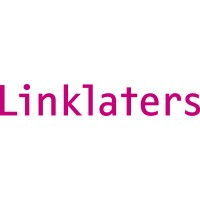Now Reading: Integrating Flexible Legal Staffing Solutions: A Strategic Approach for HR and Legal Departments
-
01
Integrating Flexible Legal Staffing Solutions: A Strategic Approach for HR and Legal Departments

Integrating Flexible Legal Staffing Solutions: A Strategic Approach for HR and Legal Departments
In today’s dynamic business environment, companies need access to high-quality resources and experts to figure out future steps. With ever-changing legal demands, it makes sense that more businesses turn to lawyers for guidance.
Still, having a legal team at your beck and call is not something every business can afford. In fact, most small and medium-sized businesses don’t have the budget for this type of endeavor. Luckily, nowadays, we have flexible legal staffing solutions to bridge the gap.
These solutions help businesses save time and money by providing access to legal expertise without long-term commitments.
Furthermore, you can use these experts for specific tasks that your HR or legal departments can’t solve.
This strategic approach eases workloads and promotes efficiency across departments, making your businesses more agile in handling challenges.
Practical Steps for Implementing Flexible Staffing Solutions
By integrating flexible legal staffing into your business operations, you tap into a network of skilled professionals like paralegals, specialized lawyers, administrators, and so on. This approach allows you to outsource time-consuming and sensitive legal tasks such as writing briefs, conducting research, preparing documents, and managing compliance.
Flexible staffing also lightens the workload on permanent staff members in your HR and legal departments. However, for this to happen, you must first find the right collaborators for your company and integrate them within your internal processes.
Start by assessing your organization’s specific legal needs by identifying gaps where current resources may fall short. Next, choose a legal partner who offers flexible solutions that align with your business goals. Evaluate flexible legal staffing offers based on expertise in relevant areas and the ability to integrate seamlessly into your existing workflows.
Once you have selected a provider, develop clear communication channels between HR, legal departments, and the new team members. Establish protocols for managing assignments, ensuring efficiency and accountability in task completion.
Challenges to Keep in Mind
Integrating flexible staff may not always go smoothly, but most challenges can be managed with the right strategies.
For instance, a primary concern often involves the collaboration between external and internal teams. To address this, it’s important to establish clear communication protocols from the outset. Designate points of contact in both departments to streamline interactions and prevent misunderstandings.
Another challenge is maintaining consistent quality and adherence to company standards. Implement comprehensive onboarding sessions for external staff to familiarize them with your firm’s practices, culture, and expectations. This ensures that even temporary team members deliver work that is aligned with your brand’s values.
Data security also poses a significant concern when engaging outside professionals. Use secure platforms for sharing sensitive information, and ensure all third-party contractors comply with data protection regulations relevant to your industry.
Lastly, resistance to change among existing staff can hinder integration efforts as well. Involve them early in the planning process by asking for their input on the areas where they might need help or feel overwhelmed.
By proactively addressing these issues through strategic planning and open dialogue, you can unlock the full potential offered by flexible legal staffing arrangements while minimizing associated risks.
A Proactive Approach to Regulatory Compliance
Regulatory compliance starts with understanding the evolving landscape of laws and regulations affecting your industry.
This task usually rests on the shoulders of your legal and HR teams. However, complex legal terms, confusing laws, and fast-changing regulations are difficult for regular employees to track when performing other tasks with the company.
This is why the best way to ensure compliance is by consulting an actual legal expert in the field. Their main job is to be up to date with changing regulations and make sense of new legislation, like dynamic immigration laws that impact your HR department’s operations.
Of course, regular training sessions also help to keep employees informed about current compliance requirements. These sessions should delve into specific scenarios relevant to different departments within the organization, ensuring everyone knows their responsibilities.
Technology can also help you stay compliant by detecting compliance breaches early on. But don’t rely on technology alone. Focus on implementing a culture of transparency where employees feel comfortable reporting concerns without fear of retribution.
Wrap Up
As we move forward, companies of all sizes must consider flexible legal staffing as part of their growth strategies. As regulations change and technology continues to reshape industries, organizations will increasingly rely on flexible staffing to adapt without losing their grip on reality.









